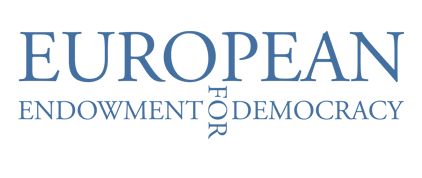The European Endowment for Democracy (EED) is an independent, grant-making organization, established in 2013 by the European Union (EU) and EU member states to foster democracy in the European Neighborhood and beyond. All EU member states are members of EED’s Board of Governors, together with members of the European Parliament and civil society experts.
The goal of the EED, which calls itself “a demand-driven organization,” is to provide flexible support to democracy activists, complementing other EU and member state democracy support programs. On its website, the endowment says it focuses on the space “civil society is shrinking due to administrative, legal, social and political barriers and accepts significant political and operational risks as part of its operations.”
By building citizens’ capacities and strengthening independent voices, the EED supports initiatives that build foundations for more inclusive and participatory democracies and work to counter corruption. The endowment “has clearly demonstrated its added value through its essential support to human rights defenders and civic activists unable to obtain funding from other donors – whether due to restrictive legal environments, government repression, security concerns, or political sensitivities,” it states on its website.
In 2016, the EED supported more than a hundred projects and pro-democracy activists in 18 countries neighboring the European Union.

In the CIMA survey, each donor was asked to rate from high to low in terms of priority the types of media interventions it supports.
With their 57 supported initiatives, media projects were the second highest ongoing activity in 2016 after civic activism and participation with its 71 ongoing initiatives. Around one-third of EED’s support in total goes to media-related projects.
Media development is important to EED’s mission. A staff member told CIMA: “Support to media initiatives remains an important priority for EED. Over the past year, EED has continued to enable the development and maintenance of independent media as a key contribution to facilitate a transition to democracy in the countries in the EU neighborhood.”
Since inception, EED has supported media development projects totaling more than $4 million, or nearly 4 million Euros. It often awards small grants – around $70,000 or €60,000 on average – and ones that are frequently for a short duration, such as six to 12 months.
EED grant-making is almost entirely demand-driven, and takes place in an open-ended application and funding cycle. EED prioritizes activities that would be difficult to fund through other channels.
The EED complements EU funding vehicles, particularly by being able to provide support rapidly through targeted outreach, identifying the most promising potential grantees, and by directly assisting applicants during the proposal phase.
By region and percentage, the EED’s funding went to:
Please note, in some cases, the EED uses different recipient country categories than that in CIMA’s regional breakdown. An EED staff member told CIMA that in some instances, recipient countries “straddle both Asia/Europe.” (EED classifies Russia as Europe and Turkey as Asia).
$4 million
Media Development Support Since Inception
One of EED’s principal media-related projects involves promoting independent and alternative Russian-language media outlets in the Russian-language media space. After an EED-coordinated 2015 study entitled “Bringing Plurality and Balance to the Russian Language Media Space,” the EED acted as the coordinating body in implementing key report recommendations. These included establishing the Russian-Language News Exchange (RLNE), and the Baltic Centre for Media Excellence (BCME). A third EED-coordinated initiative, the ‘Creative Content Support Fund,’ is in development.
The RLNE is a regional news hub with a central news desk in Prague. It provides independent, high-quality news content in the Russian-language media space. The Riga-based BCME is a one-stop-shop secretariat for independent Russian-language media outlets offering expertise, research, and information. The Content Fund provides grants for the creation of innovative, entertaining, and informative non-news TV and video content for Russian-speaking audiences.
With most media outlets in Armenia under tight state control, the EED-supported Gyumri-based independent TV station GALA (Gyumri Independent News Agency) offers a platform for debate, as well as news programs and a means to keep citizens better informed and able to exchange different views.
In an environment in which many independent channels have had their licenses revoked and advertisers have been pressured by the government to withdraw deals, EED funding has helped sustain operations. GALA airs a weekly topical debate show featuring politicians and other public figures and broadcasts news bulletins 13 times a day. It reaches 220,000 viewers in the region and attracts increasing numbers of Internet viewers and social media followers.
In providing seed funding to the start-up Donetsk Hromadske TV, the EED’s goal was to strengthen the TV’s capacity and outreach as well as to provide credible information about the situation on the ground to Russian-speaking audiences on both sides of the Ukrainian-Russian border.
In its support to the online and printed newspaper, Drohobychynna Media, the EED’s funding was crucial in the early stages of the organization and its drive to reach towns and rural areas. This alternative media platform has a team of investigative journalists and bloggers who provide credible news coverage with a specific focus on anti-corruption. The newspaper is then distributed in several towns in Western Ukraine, essential for reaching people who do not access their news via internet.
Website: https://www.democracyendowment.eu/
Report Author: Marguerite Sullivan
Last Updated: March 2018